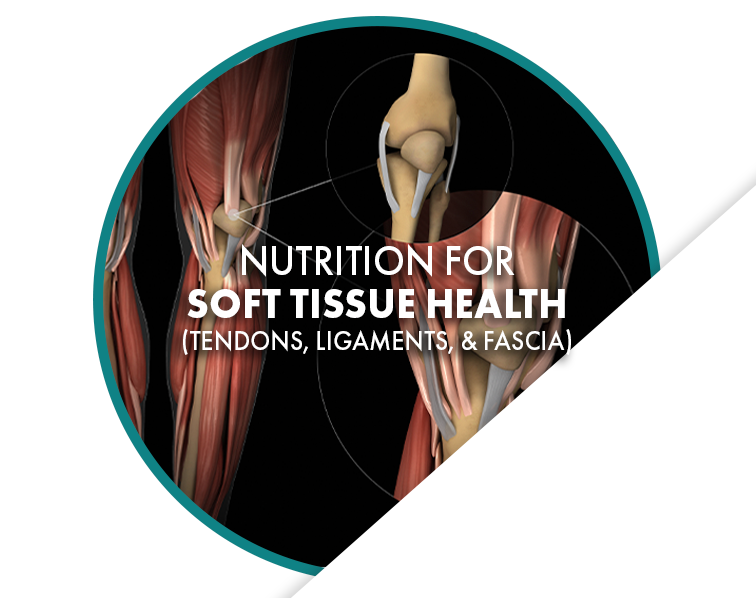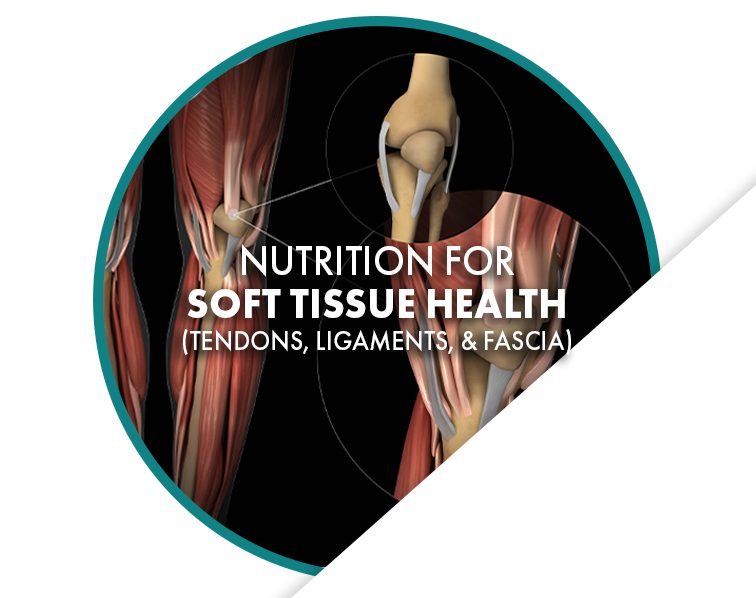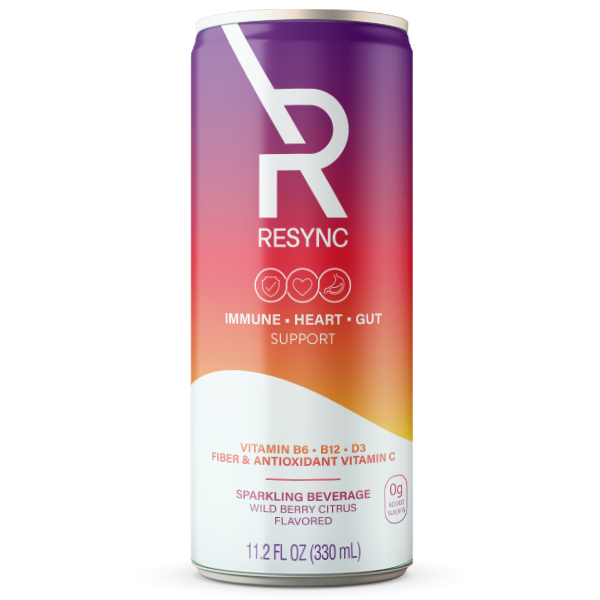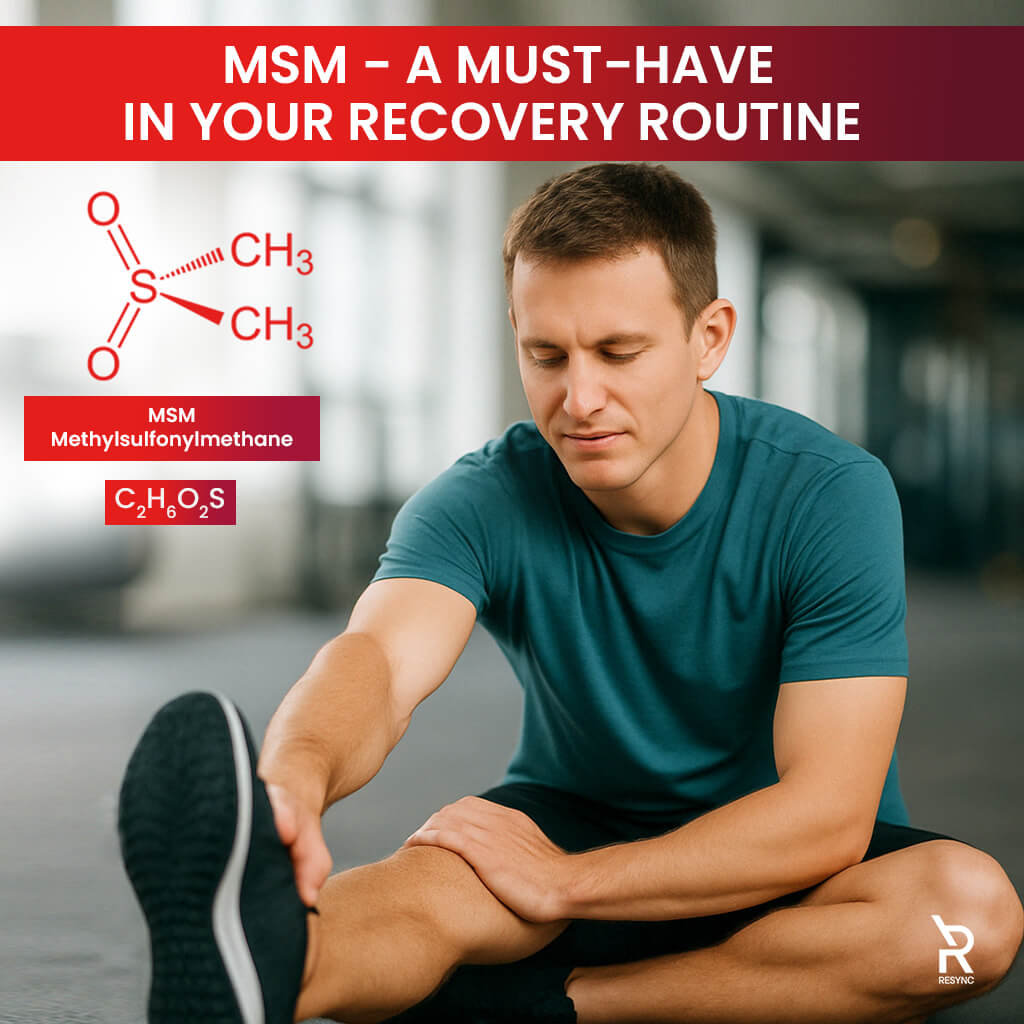
Collagen Decoded:
Science-Backed Answers For Athletes & Active Movers 50+
Over the last decade, while working with elite athletes and the aging population, I've been asked hundreds of questions about collagen and its importance in our health and performance.From NFL locker rooms to women in their 60s looking to age with strength and grace—the curiosity around collagen protein is ongoing, and rightfully so.
But with all the buzz, comes confusion.In this article, I will answer the most common questions I have been asked about collagen—based on both scientific research and real-world performance.
Regardless of who you are, I want you to feel confident about the authentic benefits you can gain from using collagen protein. You can achieve many positive results when you take the right amounts of collagen with the proper synergistic ingredients.
For simplicity, I’ve divided this blog into three parts—so you can jump straight to what matters most to you:
Top 3 Collagen Questions Athletes Ask
These are the most common questions I hear from elite performers—from PGA, MLB, and NFL players, coaches, and registered dietitians.
If you train hard like pro athletes do, you want to protect your soft tissues around the joints and recover faster to continue playing your sport, and staying active like athletes do.
This section will serve you well.
1. Does collagen protein help with injury prevention or recovery?
Yes—it helps with both.Here is how
We need to start thinking about what each structure in the body is made of. When it comes to the main protein that keeps every layer of the body elastic, hydrated, and resilient to injury, collagen is the key.
Everything that surrounds and makes the joint, requires collagen, anywhere from 70-90% - fascia, ligaments, tendons,cartilage, bones they all are made of collagen and support muscle function. Therefore, collagen is essential component to keep your connective and soft tissues healthy and keep you away from injury.
When you only use whey protein, and do not add collagen to your recovery drink. You decrease the most important amino acid that your tendon is made of, glycine. No wonder there are so many connective tissues injuries in pro sports with all the whey, muscle driven shakes.
I’ve seen this first-hand working with NFL players who were prone to non-contact injuries before integrating collagen protein into their recovery routine.
You can learn what you need to create collagen within soft tissues (fascia, tendons and ligaments) to keep them elastic and resilient to injuries in our online class.
- A 2017 UC Davis study showed improved tendon strength and collagen density in athletes after consistent collagen supplementation 60 min prior to training.
- Collagen peptide supplementation has been shown to promote recovery, decrease pain, and improve strength and body composition when paired with resistance training.(Ma et al., 2022)
2. Can collagen reduce joint pain or stiffness from heavy training?
In short, yes.
However, before you view references, I am going to suggest, you ask yourself another question, what contributes to my stiffness or joint pain?
As a coach and someone who has done a lot of research around this subject, I see that stiffness in elite athletes is often caused by a combination of microscopic connective tissue overload, connective tissue dehydration, and nervous system tension.
Even with strong muscles, when fascia—the connective tissue surrounding muscles loses its elasticity due to overtraining, poor recovery, or lack of variability in loading patterns, it becomes stiff and less responsive, leading to joint pain.
Add a lack of blood flow, inflammation, neuromuscular fatigue, or compensation patterns due to old injuries, and stiffness shows up as the body’s way of protecting itself from further strain.
In short, stiffness isn’t just related to tight muscles—it’s a system-wide signal of imbalance between load, recovery, and tissue hydration.
- Clark et al. (2008) observed significant reductions in joint pain in athletes who took collagen peptides daily for 24 weeks.
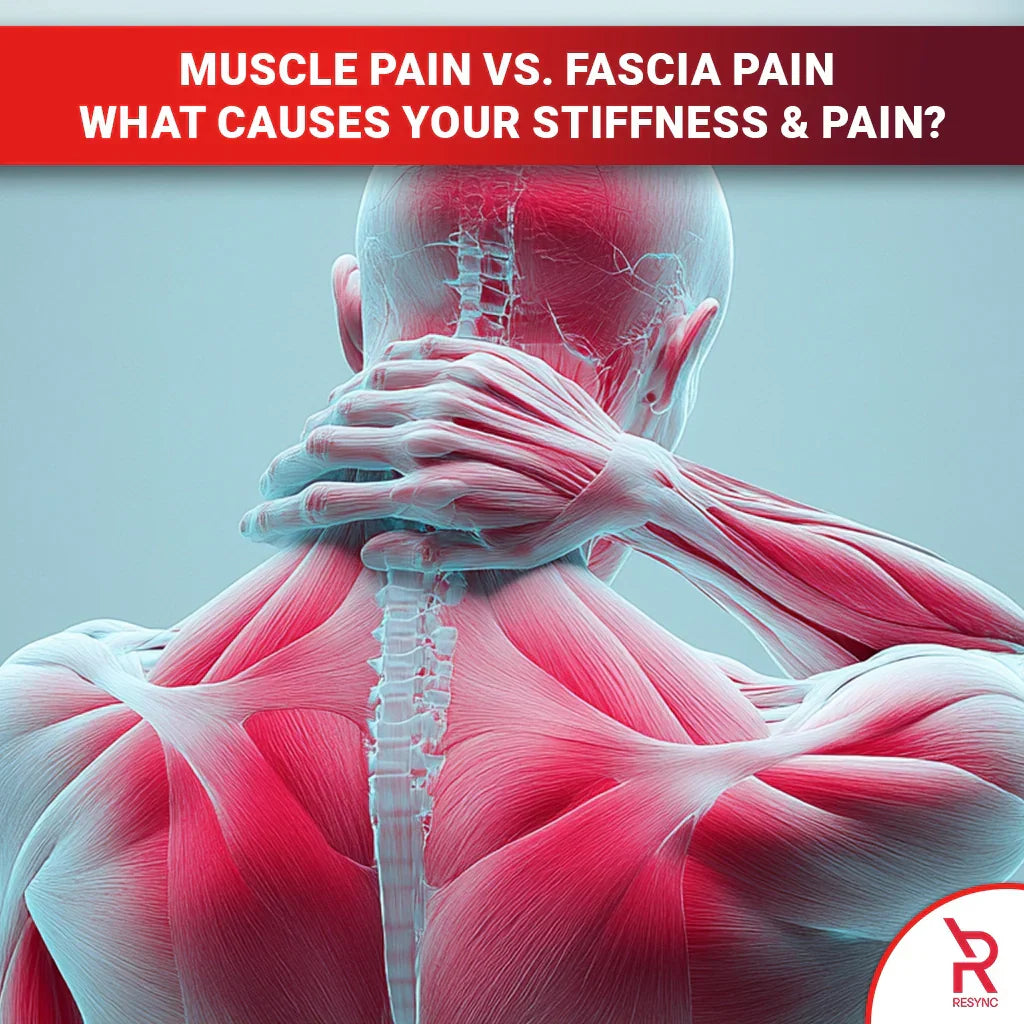
3. Is collagen a complete protein?
Collagen is not a complete protein—it lacks tryptophan, one of the nine essential amino acids, and is naturally low in branched-chain amino acids (BCAAs) like leucine, isoleucine, and valine, which are critical for muscle repair and recovery.
But collagen it is rich in glycine, proline, and hydroxyproline, which are vital for connective tissue health that support muscle and joint function.
That’s why I always recommend combining collagen with a whey protein, to make it complete protein for any athlete to support the entire musculoskeletal system, not just part of it.
Resync’s Beyond Muscle Recovery & Repair includes both collagen peptides and lactose-free whey protein, giving your body a full amino acid spectrum for every structure recovery.
Learn more about this combination in: Top 5 Best Collagen Supplements

Beyond Muscle Recovery & Repair
Dark chocolate complete protein blend is designed to strengthen and repair every layer of the body.
- Skin
- Muscle & Fascia
- Tendons & Ligaments
- Cartilage & Bones
Use Code BLOG2025– Save 15%
Bonus Question: How does collagen fit into a long-term performance and success strategy?
- Collagen production declines with overload, injuries, sugar intake, and naturally after age 30. It is a key nutritional ingredient to support your long-term athletic body and excellence.
- Consuming collagen early in life can help protect the body from injury, keep it elastic as you age, and continue your successful career.
Elite athletes think about longevity, not just this season. Collagen isn’t just for now—it’s for maintaining mobility and resilience in the years ahead.
Top 3 Collagen Questions From Adults 50+
Collagen support becomes non-negotiable after the age of 40. Whether you're walking daily, playing golf, or doing yoga to maintain flexibility, here are the top collagen-related questions I get from adults who want to move pain-free, age gracefully, and protect their joints from stiffness.
1. Is collagen good for joint pain and bone density?
Yes, collagen is one of the most researched nutrients for aging joints and recently more research focuses on bone density.
Did you know that your bones alone, are ~90% made of collagen?
Yes, collagen, is an essential building block for bone integrity and the connective tissue around the joint.
- A research in Osteoarthritis and Cartilage found that older adults with knee OA experienced significant pain relief in patients with knee osteoarthritis who received collagen peptides
- A 2018 study in postmenopausal women showed bone density and lean mass improvements when collagen was paired with resistance training for 12 months.
Collagen is especially important after 50, when bone and muscle loss accelerate.
2. Can collagen improve skin elasticity and reduce wrinkles?
Yes, the research is very supportive of the fact that collagen protein has the ability to improve:
- Skin elasticity
- Skin hydration (key to skin elasticity)
- Fine lines and wrinkles
A 2021 meta-analysis of clinical studies confirmed visible improvements in adults over 45 when collagen was combined with Vitamin C and essential micronutrients.
Both oral and topical collagen can contribute to reducing or delaying skin aging
If you wonder, what’s better for my skin, marine, or bovine collagen. I invite you to read one of my blogs Is Marine Collagen Good for You?
Collagen is a major component of our skin structure (~70%)—helps you feel better.

3. What’s the best dose and time to take collagen?
For years the science has supported the dose of 10–15g of collagen per day.
Now, here is what’s important to note. If you want to support every structure in your body, not just skin, then I suggest you take 10g collagen + 10g of whey-protein that’s ideal to support your entire musculoskeletal system and what’s around it, as you actively age.
Best timing:
- Morning (with breakfast)
- Pre-workout (60 min before to support joint health)
- Before bed (for tissue repair during sleep)
Pro Tip: Always pair collagen with Vitamin C and additional vitamins & minerals to activate collagen synthesis. Without the vitamins and minerals, results may be minimal, if any.

Beyond Muscle Recovery & Repair
Dark chocolate complete protein blend is designed to strengthen and repair every layer of the body.
- Skin
- Muscle & Fascia
- Tendons & Ligaments
- Cartilage & Bones
Use Code BLOG2025– Save 15%
Quick Answers to Frequently Asked Common Questions on Collagen
How much collagen should I take per day?
- 10g for basic support
- 15–20g for active individuals
- 20–30g for athletic recovery, injury or surgery rehab
Also refer: Top 5 Collagen Supplements Reviewed
Can collagen help with weight loss?
Indirectly, yes. It is a protein that the body needs to keep you healthy so you can continue being active. It supports lean mass and has an impact on reducing cravings, just like any macronutrients—all important for sustainable fat loss.
Can collagen cause constipation?
That’s quite unlikely. Most constipation issues come from low fiber diet, stress, lack of nutrient absorption, dehydration or low-quality diet and supplements intake. Always, choose clean, well-formulated products.
Will collagen help with cellulite?
Yes it can. However, it goes back to what I already addressed above in this blog - bigger picture. A 2015 study showed that daily collagen peptide intake improved skin texture and reduced visible cellulite after six months(Study: PMC4685482)
Is collagen vegan or plant-based?
No—collagen is not vegan or plant-based.
There is no such a thing as vegan or plant-based collagen.That’s a marketing term, supplement companies use to confuse the consumer and make more money on innocent people, who trust what they read.
Collagen, is derived from animal sources such as bovine (cow), marine (fish), or porcine (pig) connective tissues. That’s because collagen is a protein found in animals, and there’s currently no natural plant-based source of real collagen peptides.
Again, vegan collagen is a marketing term many supplement companies use to confuse customers.
Please watch my youtube video to learn more what might be better for you Before You Buy Marine Collagen - Watch This!
Final Thoughts
Whether you’re an elite athlete aiming for peak performance, or someone over 50 wanting to move pain-free and enjoy daily activities—collagen is a fundamental daily nutrient.
But it’s not enough to take just plain collagen. Your body needs the right supporting ingredients to make collagen in your body.
That’s why I created Beyond Muscle Recovery & Repair. It delivers more than just collagen:
- 11g hydrolyzed collagen peptides
- 11g lactose-free whey protein (complete protein to support every structure in your body)
- Essential vitamins - A, C, D3, E, K2 (MK7), B-complex
- Red spinach and Aronia berry to support nitric oxide
- OptiMSM (for inflammation)
- Essential minerals and electrolytes
This isn’t just a collagen supplement—it’s a performance strategy for your skin, joints, and all the connective tissues around it.
Keep Learning with Resync


Subscribe and never miss out!
Resync is backed by research. We break down complex science into practical takeaways you can use today. When you have the right information, you are empowered to make the decision that’s right for you. If there’s something you want to know more about, let us know by leaving a comment, contacting us or getting in touch on social media!
Helping you lead a healthier life,The Resync Team

JOIN OUR NEWSLETTER
Stay up to date with the latest science-backed data, receive expert knowledge, and healthy inspiration for you and your family.
Get 15% Off Your Order When You Sign Up For Our Newsletter
Save 20% Off All Resync Products
Use Code: BLOG2021
Shop Now
